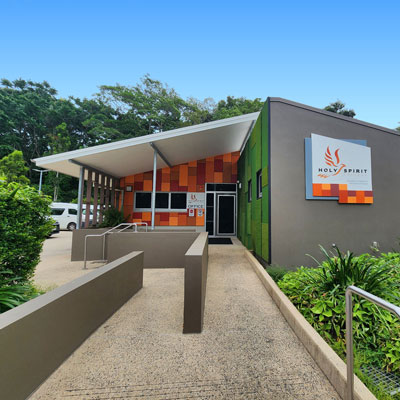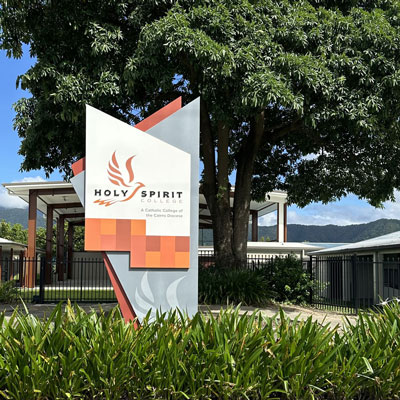Criteria for Enrolment – Special Assistance School
Holy Spirit College is accredited and funded as a Special Assistance School; to enrol a young person must be between 11 and 18 years of age to participate in secondary schooling from year levels 7 to 12 and disengaged from schooling and be a ‘relevant student’.
Disengaged
While there are many explanations of what engagement means and looks like in schools, disengagement is not as easy to define. At Holy Spirit College we believe that disengaged can be categorised as active or passive:
- Actively disengaged – in that a young person is of secondary school age but is not enrolled in and/or attended a secondary school for a period that has resulted in a gap between chronological age and their level of educational attainment.
- Actively disengaged – in that the young person has significant low attendance at a school in which they are enrolled e.g. less than 70% over a long period of time without a valid reason.
- Passively disengaged – young people who are enrolled in schools but are likely to leave the education system without having attained a level of qualification that will allow them to transition successfully into the next phase of their life. Markers of passive engagement include significantly lower than average attainment scores in assessable subjects e.g. Report Grades of D or less. A feature of attendance at school is a high suspension rate, and potentially a history of behavioural issues in school environments.
Relevant students
Students who:
- would not otherwise be –
- participating in an eligible option full-time, or in paid employment for at least 25 hours each week, during the compulsory participation phase; and
- participating in an eligible option full-time, or in paid employment for at least 25 hours each week, during the compulsory participation phase; and
- enrolled and attending school while of compulsory school age; or
- are not provisionally registered, or registered, for home education.
Enrolment Process
If you are interested in exploring what Holy Spirit College has to offer prior to applying, please contact the relevant campus to book a tour.
Step 1: Application
To apply for enrolment, you will need to complete an expression of interest form.
The following documents must be submitted with your expression of interest. Please contact the College if there are difficulties with this.
- Child safety and/ or Youth Justice safety and case management plans
- Proof of identity e.g. Birth Certificate or Medicare
- Copies of previous school reports and school attendance history
- Behaviour support plans
- Any Individual Education Plans/ Personalised Learning Plans
- Copies of any assessments or specialist reports (such as medical, speech therapy, psychologists etc)
- Copies of any Legal orders
Step 2: Review
Our Head of Campus will review the documentation to determine if the young person meets criteria for a Special Assistance School. A request for further information or an enrolment ineligibility letter will be issued if it is determined that the young person does not meet criteria.
Step 3: Stakeholder case management meeting
If applicable, a stakeholder case management meeting will be scheduled for young people who are currently linked with outside services for example Child Safety, Youth Justice, Yeti or Residential care. The purpose of this meeting is to ascertain a greater understanding of the young person’s situation and create a plan to best support their learning journey. All agencies involved must have a representative present at this meeting for the enrolment to progress.
Step 4: An interview is arranged
All eligible enrolments to Holy Spirit College must have an enrolment interview with the Head of Campus. The young person’s parents or their legal guardians must also be present at the enrolment interview.
Step 5: Offer
If your application is successful, the Head of Campus will issue a written offer of enrolment and will negotiate the young person’s transition into College.
Not all young people that apply to Holy Spirit College are offered a place. Examples may include, if a young person is assessed to have an extreme and specific level of need and Holy Spirit College may not have the resources to cater to the educational needs of the young person, or the young person may pose an unacceptable risk to the safety of other students. Places are offered to young people who have successfully completed the enrolment process if positions are available.


